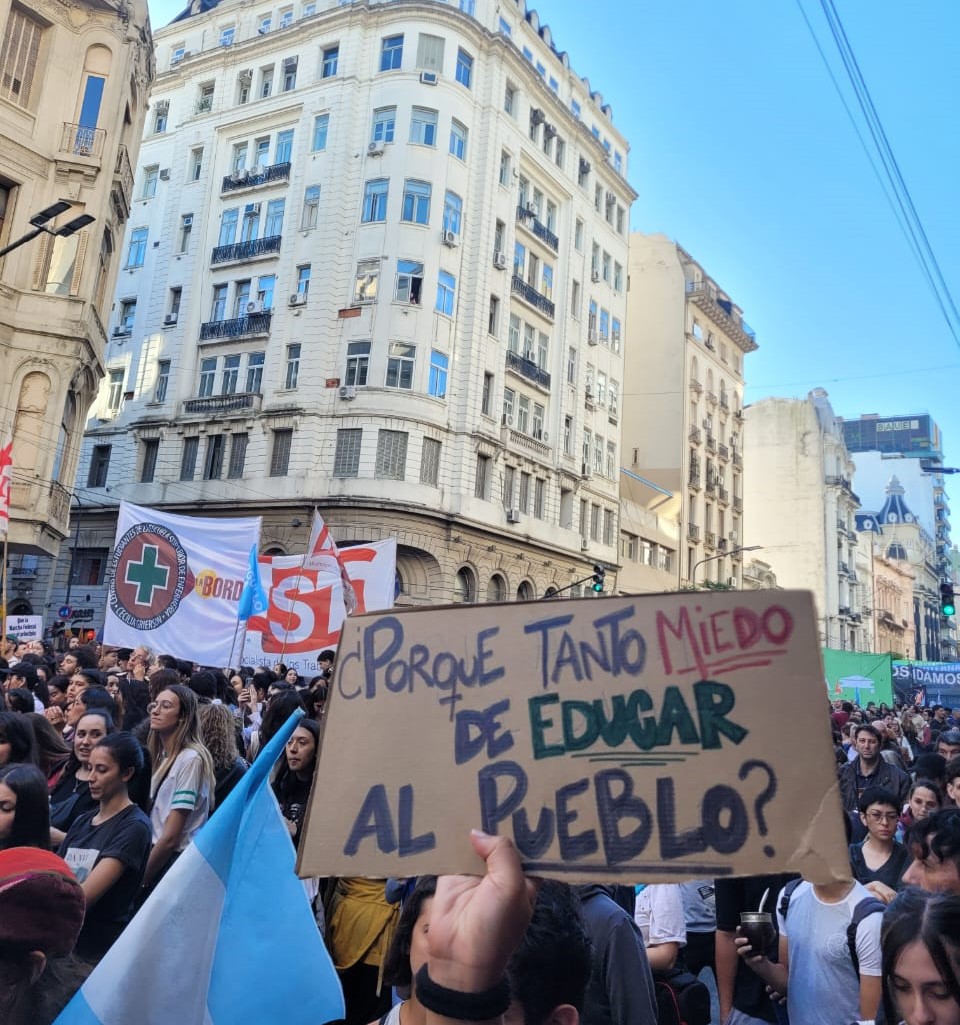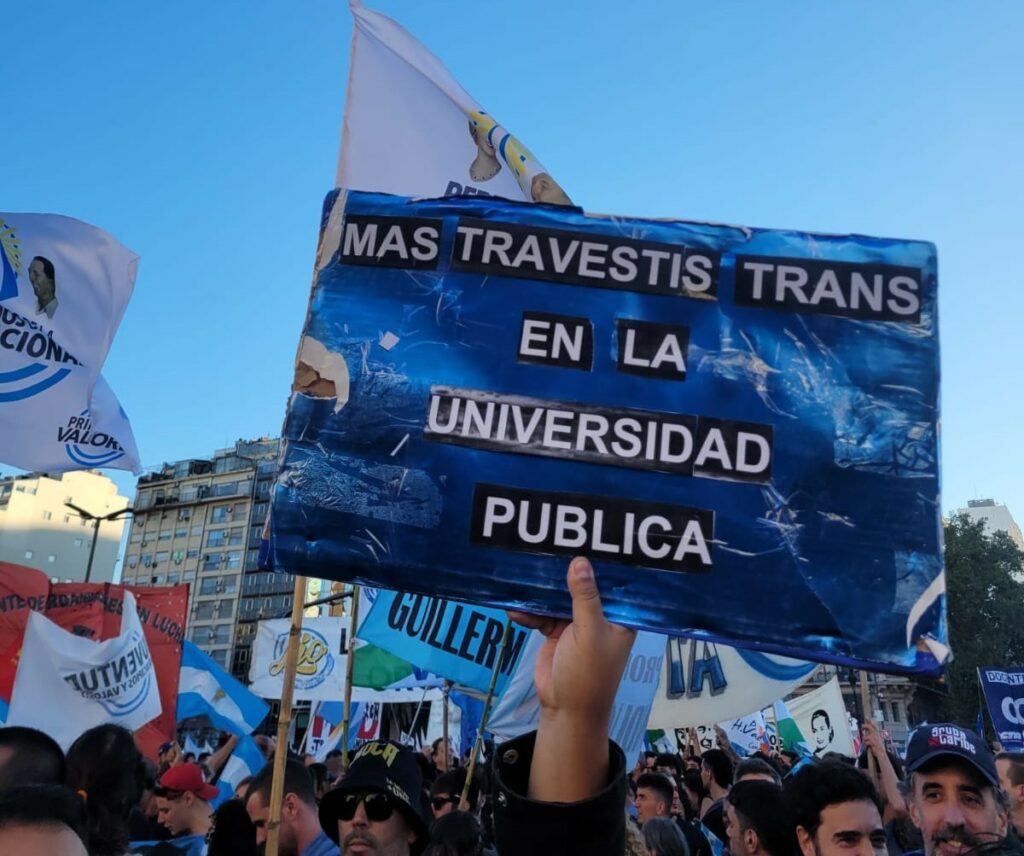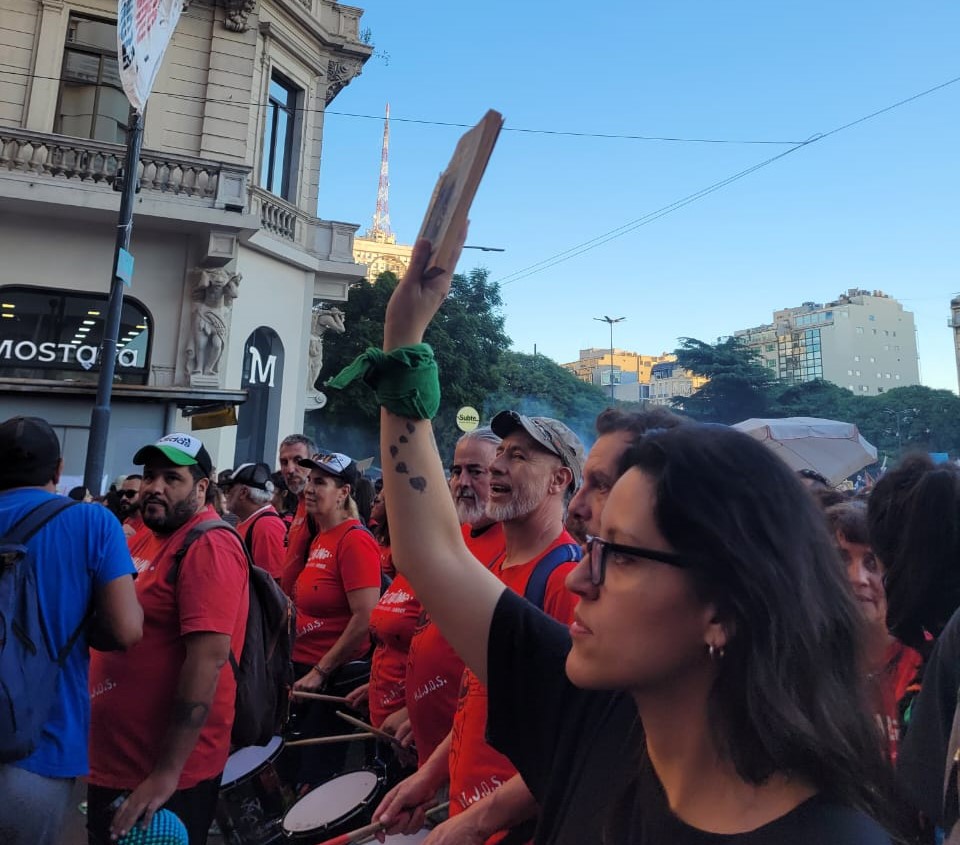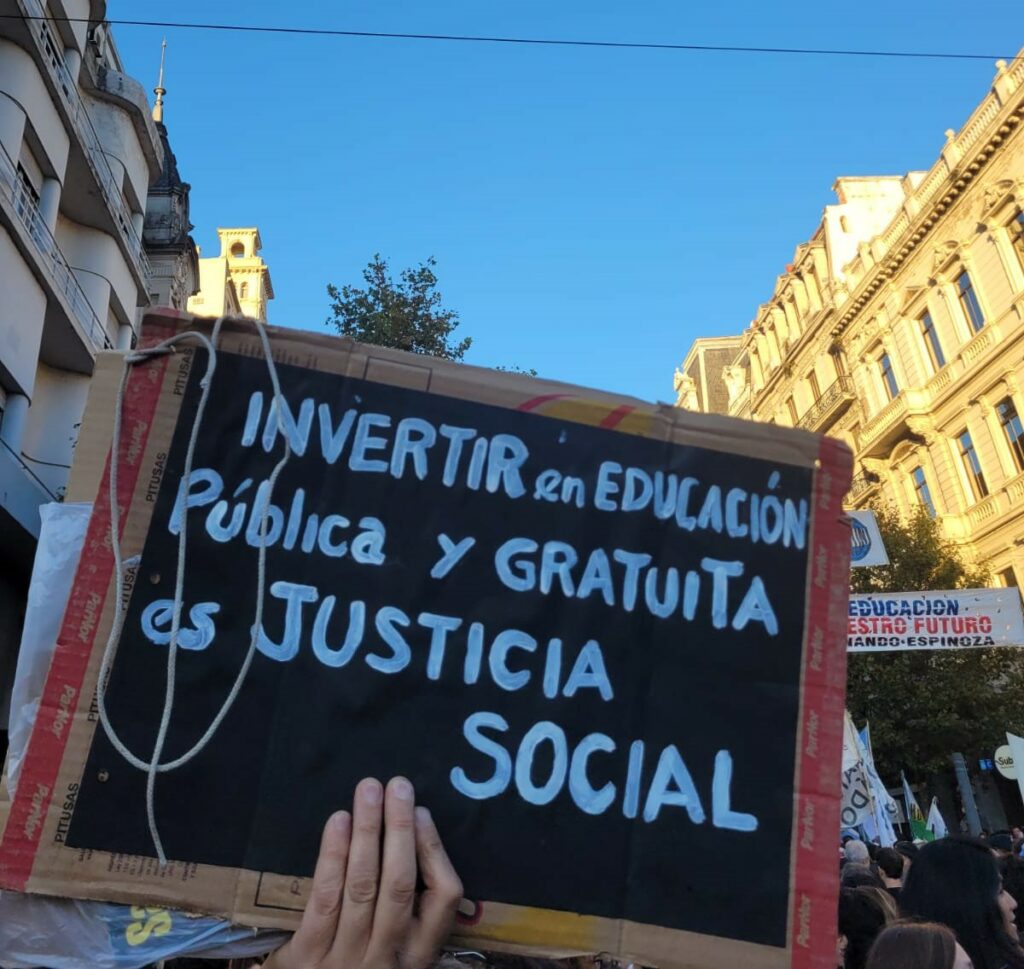Organisations and social movements called for a national march after budget cuts at the University of Buenos Aires.
Cuts in investment in public policies were the first measures of Javier Milei’s ultra-right and ultra-liberal government in Argentina. Recently, the administration of the University of Buenos Aires, the largest in the country and home to almost 350,000 students, announced a financial emergency after the federal government cut 80% of its budget.
Social movements, political parties, trade unions and student organisations have called for a national march on 23 April in defence of public education, one of the country’s greatest pride. Argentina has public education from primary to higher education and receives thousands of immigrant students from other Latin American countries who cannot access free education at home. An estimated one million people took to the streets in the country’s main cities.
Argentina is known for its capacity for popular political organisation and mobilisation, and one of its protagonists is undoubtedly the feminist movement. In the last decade, the country has attracted international attention for its advances in the feminist political agenda, such as the approval of abortion rights, comprehensive sexual education and care policy. On the 23rd, feminists marched alongside teachers, educators, students and trade unionists, building solidarity and bridges between our political agendas. In the crowd, pañuelos (green scarves), the symbol of the feminist movement in the country, mingled with books, political flags and school uniforms. During the march, we spoke to feminists to understand how the demand for free, universal public education connects with their political aspirations as feminists.
It was very difficult for women to access knowledge, words and writing… We were always confined to the kitchen. Juana Inés de la Cruz had to become a nun to have access to thought. The university has to be open to everyone, to all social classes. Here in Argentina, we are very proud of it because when you are a child you can be asked what you want to be when you grow up and any child can answer freely because there is a free, public university.
Julia Mengolini, Journalist
Women, travestis and transgender people are also the ones who don’t have access to public universities. Many single mothers need support and they are the women who often have to abandon their studies to carry out caregiving tasks.
Luli Adano, Artist
Our transformative power also lies in our ability to amplify each other’s voices and find common pains, concerns and dreams across social movements. Universal public education is social justice, and there is no social justice without feminism, just as feminism without social justice is pure commodification of our political platform. Feminists of the global south celebrate the feminist power in Argentina and stand in solidarity with the cruel measures of life precarisation carried out by the Milei government and the International Monetary Fund.



